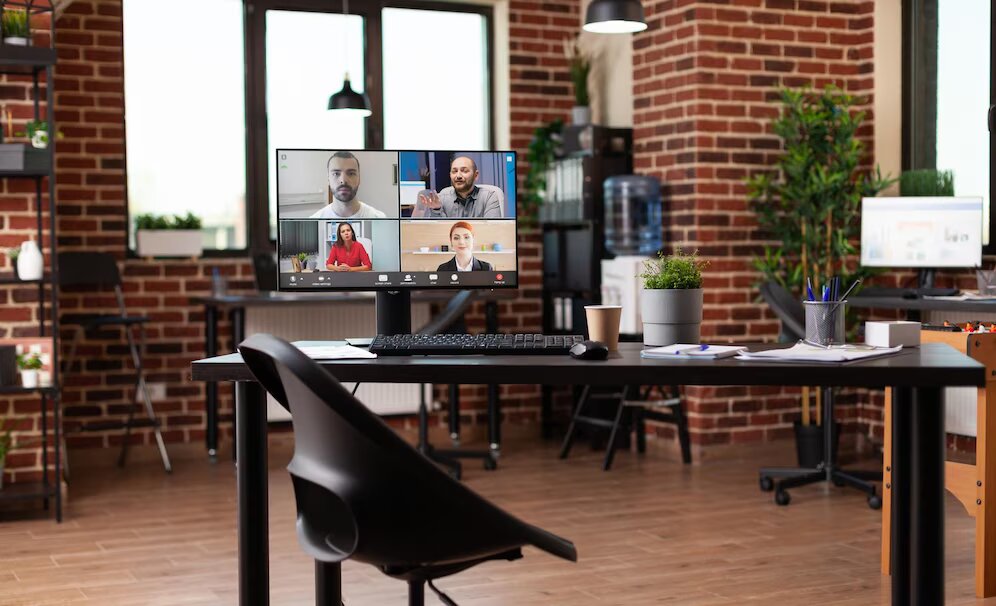The Economic Impact Of A Hybrid Office
25 March 2023
3 Mins Read

toc impalement
A hybrid office is characterized by an arrangement that blends in-office with remote work. And post the pandemic, it has evolved to become the ‘new normal’, especially for several white-collar professionals. The model aims to determine what we are learning about the work-life balance of these professionals as well as workplace productivity.
The hybrid model, in reality, maximizes all the benefits while minimizing the downsides of not just remote but in-office work as well. Moreover, hybrid work comes with its own economic advantages and disadvantages. And today, we will precisely discuss the economic impact of a functional hybrid workplace.
Stay tuned to find out more.
The Economic Impact Of A Hybrid Office: Hybrid Workplace Champions
If you are already familiar with hybrid offices and are wondering when you can get into the whole coworking scene, then you just need coworking passes to get started. Of course, you have to figure out the rent situation and how many employees you would like to start the same.
But naturally, if you have less information about such working spaces, then it’s always best to do your research. Today, we will talk about the economic impact of hybrid workplaces. So without wasting any more time, scroll down and find out who are the hybrid workplace champions!
1. Employers
According to Investopedia, organizations that opt for hybrid working models are expected to save approximately 11,000 dollars yearly per employee who spends half their working hours in remote spaces. Primarily the saving originates from an increase in employees’ productivity and savings in the real estate world.
And that’s not all, considering there is also a reduction in absenteeism under the hybrid working model. Of course, all these factors benefit most employers, making the hybrid scene a complete win-win!
2. Knowledge Economy Workers
A hybrid work model developed for all knowledge economy workers stands to benefit financially – let’s find out why. When you work from home, you can end up saving hundreds of dollars yearly on public transportation, eating out, car maintenance, work attire, and even car insurance.
Investopedia mentioned how individual workers, in such cases, can save between 600 to 6000 dollars. Farther, when employees work remotely for half of their office hours, they can end up saving about eleven working days every year – since this is the amount of time employees spend on commuting to work.
3. Office Designers And Architects
Several offices will require redesigning in order to become an effective hybrid workplace while reducing the probability of spreading any contagious illness. Greenery, indoor air density, natural lighting, and indoor air density are all vital components of an office that supports both physical and mental health.
Moreover, once more and more people started working from their homes or coworking spaces, the need to construct and, in some cases, even redecorate such places only grew. This, in turn, benefited people working in the architecture and design industry. Naturally, multiple interior decoration companies benefited from this growth.
4. Technology Companies
Hybrid workspaces might need multiple companies to boost their technology to help both on-site and remote employees to communicate efficiently. Organizations might also need to update their videoconferencing applications, video cameras, speakers, and even conference room monitors. Employees will also require high-speed internet, hotspot plans, and speedy laptops.
Cloud computing enables employees to work securely and effectively from almost anywhere in the world. As a result, having functional office management software is absolutely necessary, especially while ensuring that people coming to work on a particular day have enough space. Plus, high-tech apps can monitor multiple aspects related to workplace management.
The Economic Impact Of A Hybrid Workplce: Wrapping Up!
Now that you are aware of the economic impact of hybrid office space, what do you think about such a work setup? If you are an employee or a business owner, then you should look at the economic benefits of such workplaces – think about the operational costs and how easily you can reduce them same without any worry.
Moreover, hybrid workplaces and coworking spaces are no longer in the distant future – we are very much living in the middle of a transition, and the faster you adapt, the better for your growth. If you have experience with hybrid workspaces, let us know in the comments below.
Additional:


















Comments Are Closed For This Article